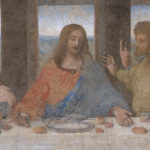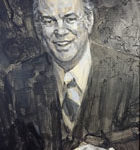
There is always something going on in society causing tension. We know there will be changes, large and small, explainable and unexplainable, affirmative and negative, but changes inevitably. Some will serve well and others hinder in the making of good lives. The matter becomes especially complicated when the changes are evaluated differently within the separate cultures. Many factors I knew as a young person and interpret as good for society then and now, are gone, some interpreted not only as unneeded or even wrong so to be displaced perhaps treated roughly for any vestigial remnant of them. Perhaps death is the only way out for some persons conditioned to live in one generation only to find themselves during the passing… Read more







